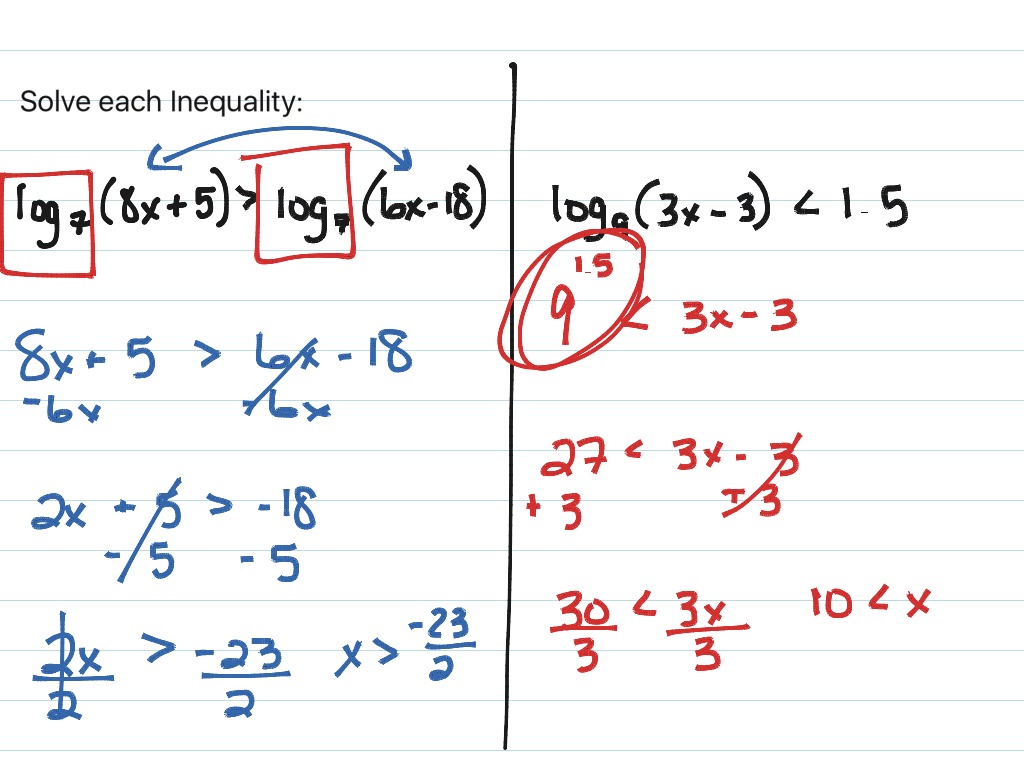

With the Tailoring Method, it’s all about relevance. If you want to take your answers to the next level, spend some time with the Tailoring Method, too. Now, should you stop with the STAR Method? Of course not. This makes your responses tons more engaging, ensuring you keep the hiring manager’s attention from beginning to end.
#Solving logs how to
With the STAR method, you learn how to turn your answers into captivating stories. Luckily, there are a couple of tools that can help.įirst, when it comes to the classic approach to behavioral interview questions, look no further than the STAR Method. So, having a great strategy means knowing how to deal with behavioral questions. After all, the goal is to find out how you approach problem-solving, so most are going to feature scenarios, brainteasers, or something similar. Instead, they are tricky behavioral interview questions. These aren’t your run-of-the-mill job interview questions. As a result, they can be a bit… unconventional. Problem-solving interview questions are all about seeing how you think. Why? Because the hiring manager might ask you something that you don’t anticipate. Knowing how to answer problem-solving interview questions is crucial. Okay, before we get to our examples, let’s take a quick second to talk about strategy. How to Answer Problem-Solving Interview Questions

That’s why it matters to hiring managers. It plays a role in troubleshooting and innovation. It helps you overcome challenges and deal with the unexpected. While problem-solving is relevant to scientific, technical, legal, medical, and a whole slew of other careers. So can analytical thinking, creativity, and open-mindedness.īut why do hiring managers worry about your problem-solving skills? Well, mainly, because every job comes with its fair share of problems. Research, diligence, patience, attention-to-detail, collaboration… they can all play a role. It’s your ability to take appropriate steps to find answers, determine how to proceed, or otherwise overcome the challenge.īeing great at it usually means having a range of helpful problem-solving skills and traits. In the end, problem-solving is an activity. Well, the good folks at Merriam-Webster define problem-solving as “the process or act of finding a solution to a problem.” While that may seem like common sense, there’s a critical part to that definition that should catch your eye. But what exactly is problem-solving? And why is it so important to hiring managers? When you’re trying to land a position, there’s a good chance you’ll face some problem-solving interview questions. Come with us as we explore this exciting part of the interview process, as well as some problem-solving interview questions and example answers. If you aren’t sure who to tackle problem-solving questions, don’t worry, we have your back. That’s why being ready to showcase your problem-solving skills is so vital. Regardless of the role you want to land, you may be asked to provide problem-solving examples or describe how you would deal with specific situations. Yes, it’s more prevalent in certain industries, but it’s helpful almost everywhere. Problem-solving is relevant to nearly any job on the planet.

However, not everyone gets ready for problem-solving interview questions. When candidates prepare for interviews, they usually focus on highlighting their leadership, communication, teamwork, and similar crucial soft skills.


 0 kommentar(er)
0 kommentar(er)
